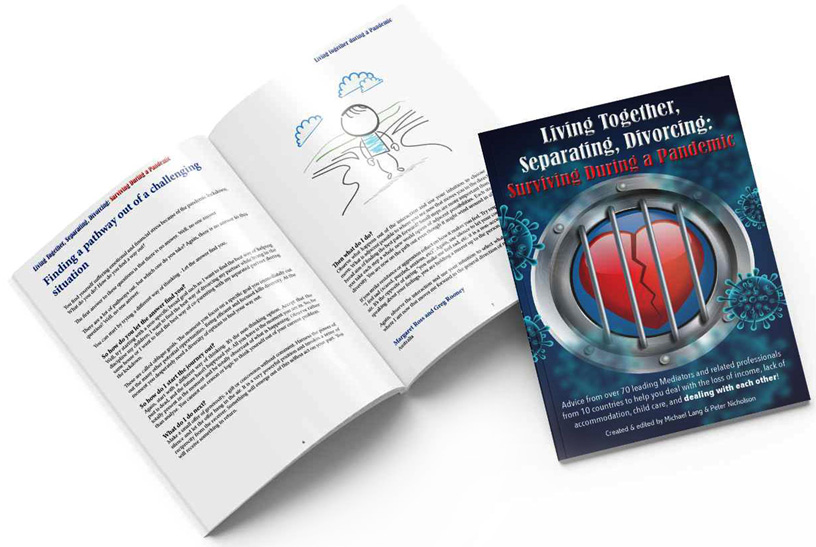
Excerpt Chapter
Author: Louise Phipps Senft
As divorce mediators, we are well-versed with Mom’s House/Dad’s House situations and the reality of children being uprooted from having one home to now having two, even in the most amicable of divorces. A child no longer has her house or his house, and indeed children no longer refer to their houses as their homes. They say they’re going to Mom’s House or Dad’s House. When COVID 19 forced colleges and universities across the country to close their dormitories and lock the gates of their campuses, it forced a mass exodus of kids fleeing home. For a number of these college kids, they thought they were going to their Childhood home, but many instead came home to a house divided, learning for the first time their parents were divorcing.
The situations were further exacerbated if the Co-ed wasn’t an angel before they left to go away for college. There was no welcome party nor a support group for them when they arrived home. In some instances, the Co-ed’s bedroom was already being turned into a home office, in other instances, it had been dismantled. The situations became tinder when a 19 or 21-year-old, used to being on their own at college, faced new house rules: no eating in bedrooms, no walking around late at night. What is a college kid to do?
Here are some learnings for parents and college Co-eds caught in the middle of these unforeseen- sometimes heartbreaking but always illuminating- situations.
Some might say it is cruel and selfish of parents in the process of divorcing to not figure out how to get along at least temporarily during COVID 19, put out a truce flag temporarily, and allow a haven for their college-age kids. Perhaps it is. Perhaps it isn’t as others will never know the full extent of any family’s history. What we do know is that a face-to-face conversation that is focused on the quality of the dialogue with some thoughtful honest preparation ahead of time- shared ahead of time–yields swift and often compassionate outcomes. Structured relational interactions about these issues build capacity for the family. Whether it’s Mom’s House or Dad’s House, these 3-way conversations create an opening for My House, a more complete and restorative picture for the House Divided family.
Louise Phipps Senft, nationally recognized transformative family Mediator, Attorney, CEO, Baltimore Mediation, Distinguished Fellow in the International Academy of Mediators, author of Best-Seller Being Relational: The Seven Ways to Quality Interaction & Lasting Positive Change, and Co-Chair of the Relational Practices Task Force for the American Bar Association.